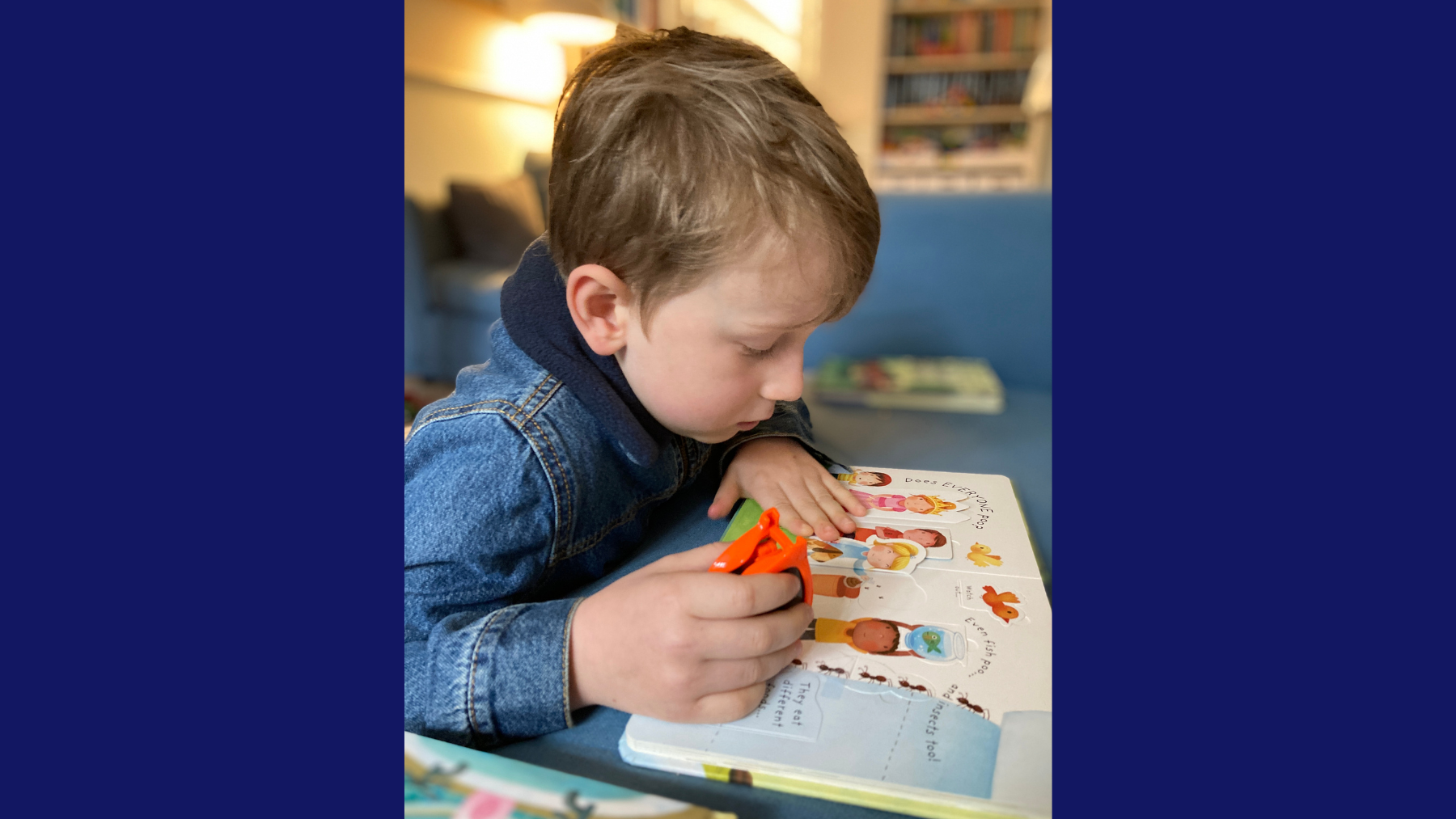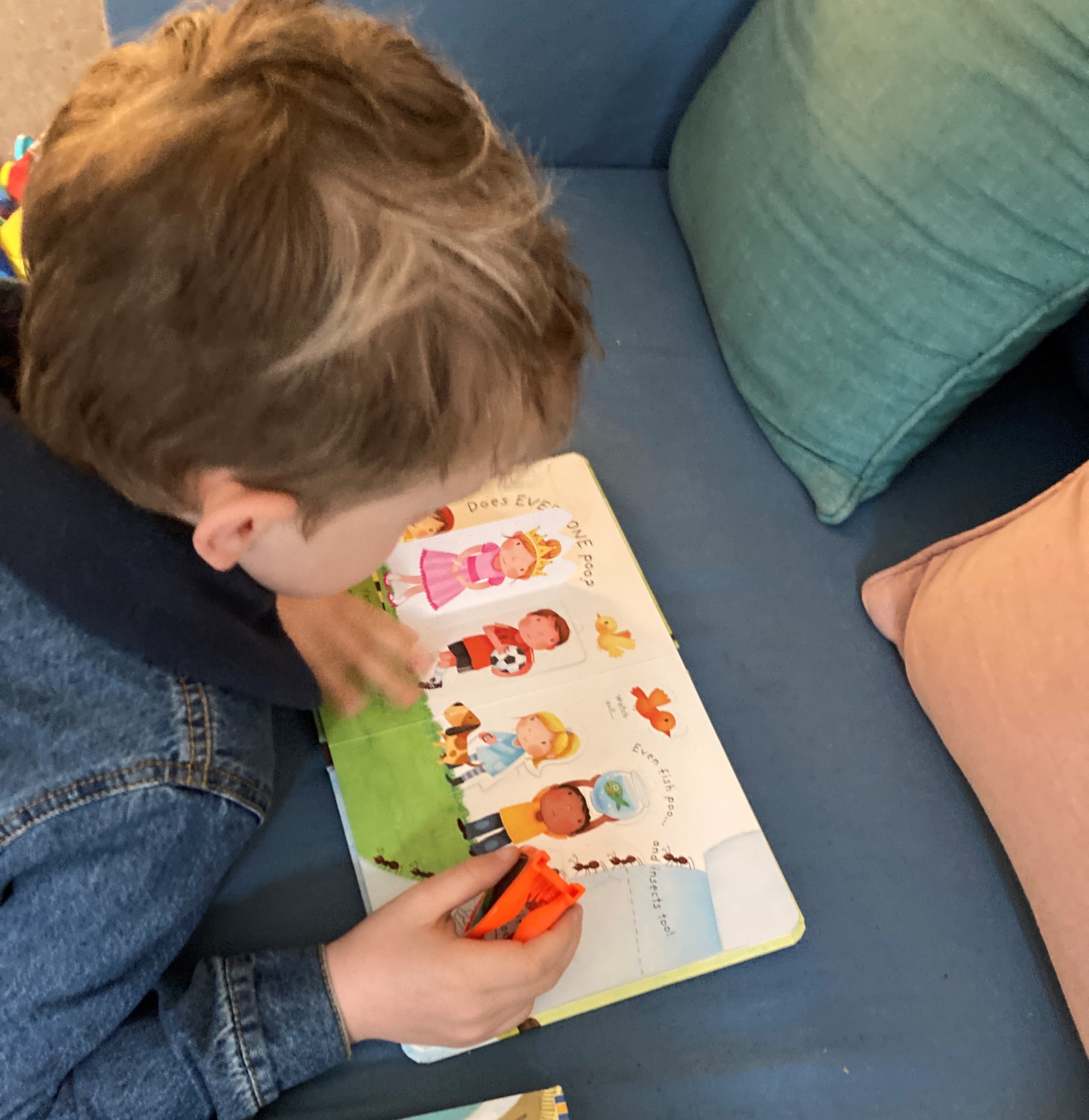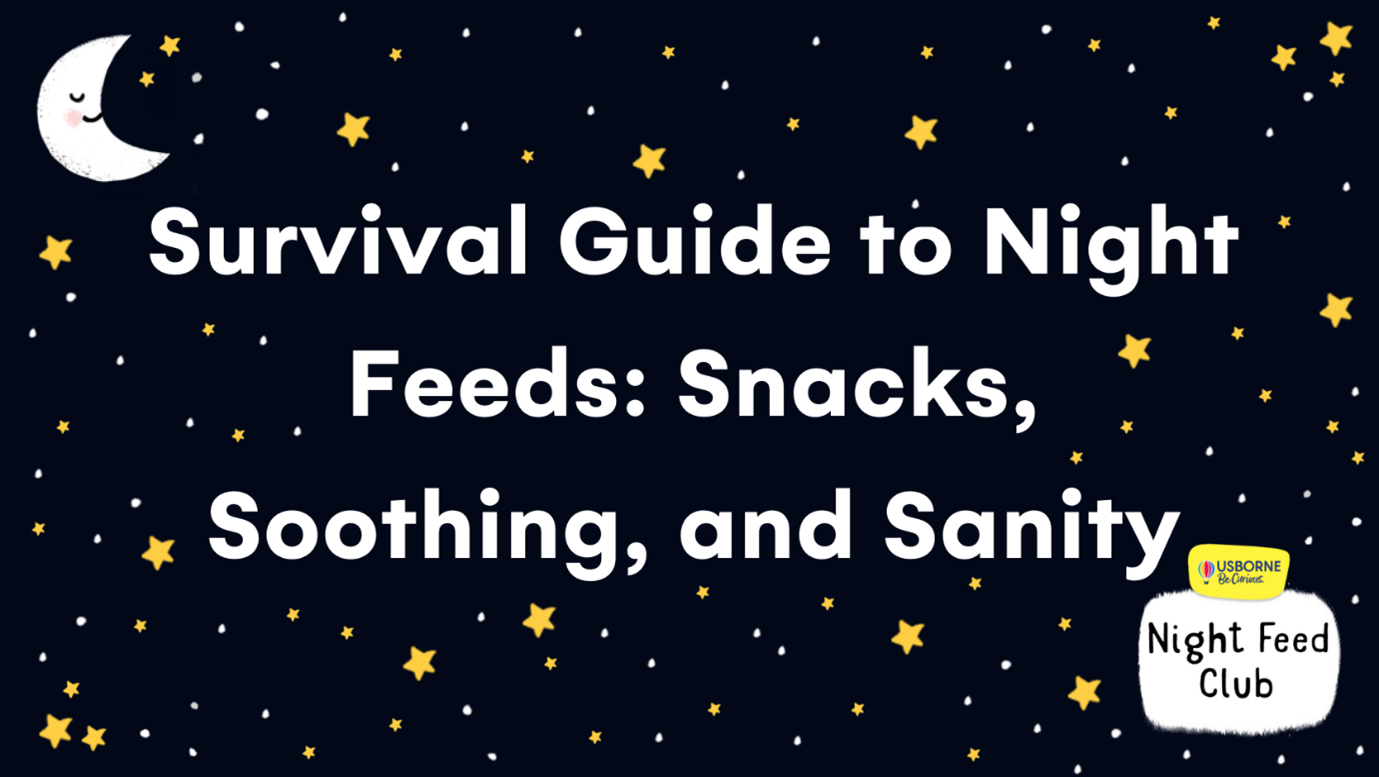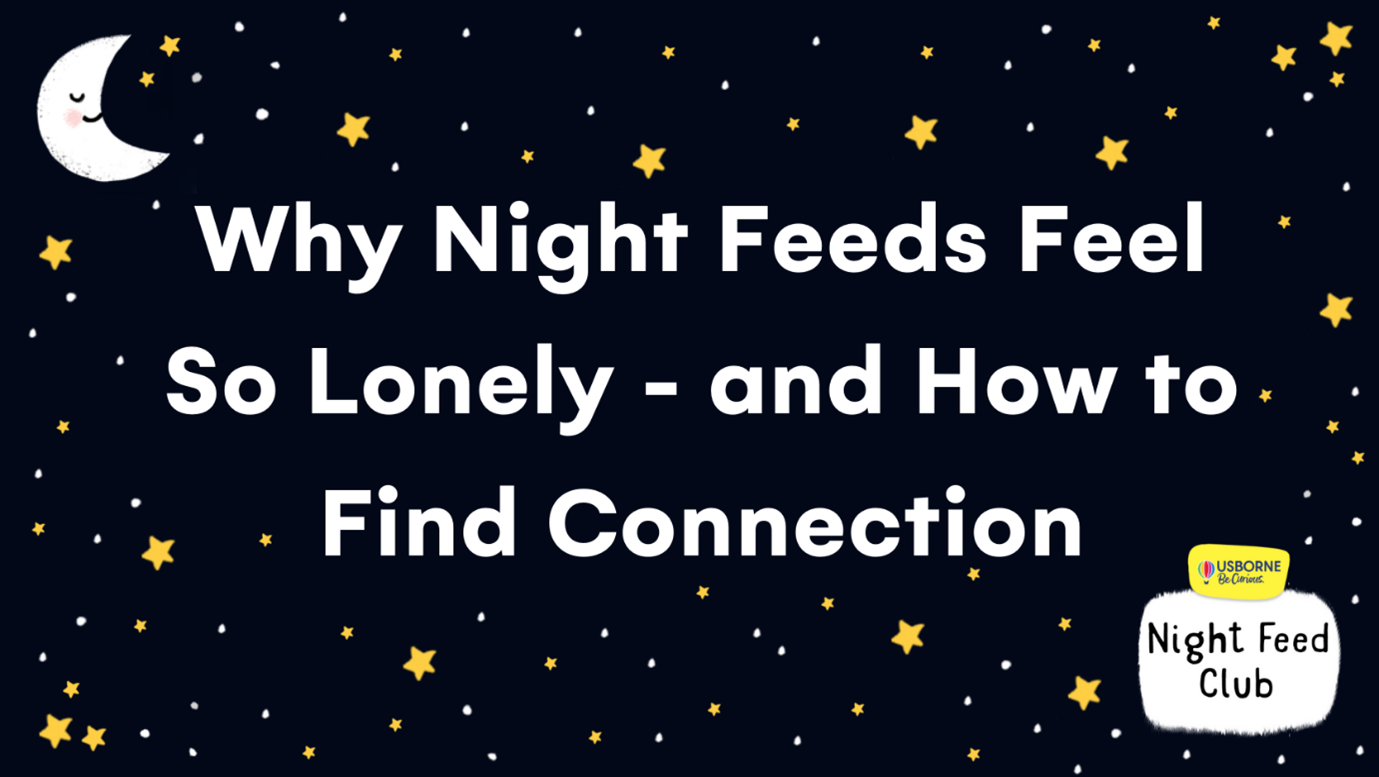- Tips and expert advice
Why Usborne's Very First Questions Books work well for my neurodivergent son

To support Neurodiversity Celebration Week, we hear from an Usborne editor about her experiences sharing Usborne’s ‘Lift-the-Flap Very First Questions and Answers’ books with her son, who has recently been diagnosed with autism.
My son is now six, and he’s loved the ‘Lift-the-Flap Very First Questions and Answers’ series of books for years now. (I should say that I’ve never worked on any of these books, but I’m very grateful to my colleagues who produce them.) We started with the ‘What is poo?’ title during my son’s potty training phase. That book was such a hit that we quickly moved on to other titles, including ‘What is sleep?’, ‘What are germs?’, ‘What is the Moon?’ and ‘Why should I brush my teeth?’.
My son reacts to these lovely books as any child might - he likes them because they answer real questions he is actually asking, about things he finds interesting, puzzling and sometimes challenging. The sweet but simple illustrations let him visualize things he really wants to see and understand - like dreams, underground sewage pipes, white blood cells or the shadowy side of the Moon. He also loves the gentle humour of goat poo that looks like toffee, a crescent moon being compared to a banana, or germs wearing party hats as they congregate in a kitchen sink.
Now that my son has a diagnosis of autism, I’ve begun to learn more about educational tools to help children with autism and other types of neurodiversity. This has helped me understand some of the more specific reasons this series of books works so well for him.
The overall approach in this series - asking and answering simple questions - is simple, factual and breaks down each topic into small, manageable chunks. This is very important for my son as he can take longer to process complex ideas and instructions – it helps him very much if everything is divided up into small portions.

These books use straightforward language. This works very well with my son’s tendency to understand things rather literally – he can find symbolic or idiomatic language puzzling and asks to have it explained. The child characters and domestic scenes shown in the illustrations are also easy for my son to relate to – again, his tendency to think rather literally can sometimes mean that he may not relate so immediately to animal or fantasy characters.
These books also tackle everyday scenarios that may give other children little bother, but to my son can seem truly mystifying or frightening – such as habits around hygiene. My son has sensory sensitivities, so simple acts like putting his hands in water, or having a bristly brush invade his mouth, can be a real source of terror to him. With gentle logic, these books explain that there are germs in the air, in soil and on everyday objects you touch; that germs can make you ill if they get inside you; and that washing your hands gets rid of germs on your hands. This knowledge can’t necessarily help my son regulate his sensory sensitivities, but it does explain to him why he still needs to wash his hands even though he finds it difficult.
Crucially, these lovely books are also reassuring. They don’t just tell you about the problems germs can cause, but also about good bacteria, how your body fights germs, and how you can avoid germs; they show children being comforted after a nightmare and cuddling a teddy to help them get to sleep. For a child like my son, whose neurodivergence makes him prone to anxieties and phobias, such reassurance is absolutely vital. All these things seem to help my son trust the information these books present – and I’m so grateful for anything that can help him to make more sense of the world around him.
Altogether I think these books are a great example of what best practice in education has already discovered – that when you create materials that are well-thought-through, age-appropriate and presented in the most simple, straightforward way possible, they work for children with some specific types of neurodiversity - but they also work for neurotypical children as well. Who doesn’t benefit from having things explained clearly and simply? It’s a win-win situation that’s definitely worth celebrating.
Meanwhile, as my son gets older, I am now looking toward the slightly older Usborne series, ‘Lift-the-Flap Questions and Answers’. Hopefully it can answer some of my son’s current questions, such as ‘Why can’t I eat sweets all day?’, ‘Are dragons real?’ and ‘Does space go on for ever?’


